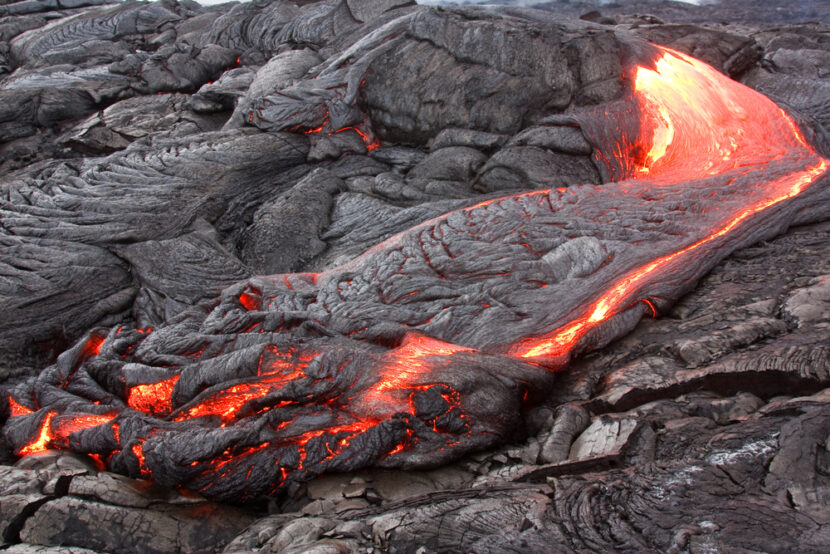PAHOA, Hawaii – Jeff and Denise Lagrimas’ single-story home is just across the street from properties where lava from Kilauea volcano is expected to slither past on its way to the ocean.
But they’re moving to another town 14 miles (23 kilometres) away before they’re able to find out whether this forecast comes true or whether the molten rock oozes into their home instead.
“I don’t want to stick around and just wait for it to come and take it,” Denise Lagrimas said while taking a break from loading kitchen cups and bowls in cardboard boxes. “You just never know.”
Civil defence officials in Hawaii County said late Tuesday the lava was about 370 yards (340 metres) from the main road in Pahoa town, the commercial centre of Puna, a sprawling, mostly agricultural and forested part on the Big Island.
The lava entered private property next to the main road and was burning tires and other materials. This prompted authorities to warn downwind residents with respiratory problems to stay indoors. The lava was edging forward at a rate of about 10 to 15 yards (meters) per hour.
Earlier Tuesday, the lava burned down an empty shed.
The lava picked up speed last week after weeks of slow, stop-and-go movement. It broke out of forest and pastureland and crossed into inhabited areas for the first time since scientists began warning about lava in August.
Pahoa residents have had weeks to prepare for what’s been described as a slow-motion disaster. Most have either already left or are prepared to go.
At least 50 or 60 structures – including homes and businesses – are in an area civil defence officials are currently warning will likely be hit.
Josiah Hunt, who has a farm in a part of Puna that is not immediately threatened, described smelling burning grass, feeling warmth from the lava and hearing “popping and sizzling and all the methane bursts that are happening in the distance … mixed with the birds chirping and the coqui frogs.”
The Lagrimas family decided to move to Kurtistown, a safe distance from Kilauea’s current flow.
“We didn’t want to go anywhere where it’s close enough where we would have to evacuate again,” she said.
The Lagrimases are also worried the lava will block roads leading out of Pahoa and prevent them from commuting to their jobs in Hilo. Then there’s the prospect of subsequent flows gradually swallowing more of the community, which is what happened to the Royal Garden and Kalapana subdivisions in the 1980s and 1990s.
“It’s so surreal, it’s so surreal. Never in my wildest dreams as a kid growing up did I think I would be running from lava,” said Denise Lagrimas.
Some people want to watch the lava destroy their homes as it’s one way to cope with the loss.
“You can only imagine the frustration as well as … despair they’re going through,” said Hawaii County Civil Defence Director Darryl Oliveira.
Hunt watched last week as the lava crept toward Pahoa and saw a woman whose house is near its path put a lei at the front of the flow. “It helps a person come to grips with the reality of the situation,” he said. “I found it to be oddly comforting in a really strange way.”
Terri Mulroy, who runs Kumu Aina Farm with her husband, said the lava flow, while unnerving, has a cleansing quality to it because it keeps development on the lush Hawaiian island in check.
“If it wasn’t for the flow, I wouldn’t be able to live here,” she said. “This land would have been a golf course for the rich.”

